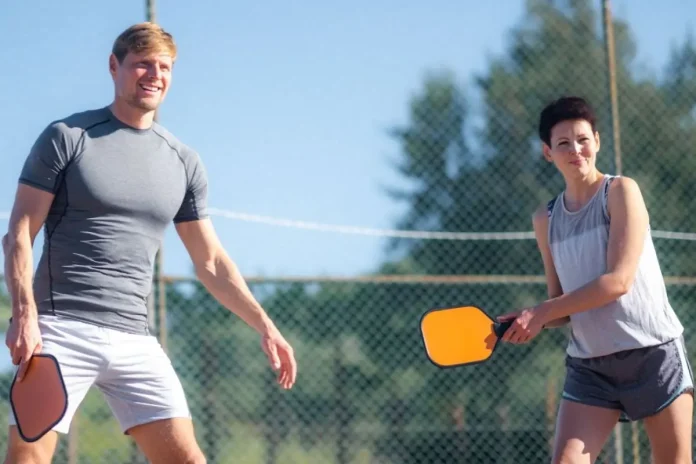Pickleball Doubles Communication Strategies: Strong communication is the key to success in doubles pickleball. Even skilled players can lose if they fail to connect, while average players can look like professionals when they work together. Knowing how to talk before, during, and after a match helps teams win points and stay united off the court.
Before the Match: Build Trust and a Plan
Players should set expectations before the first serve. Talking about “what if” situations—like how to react to missed shots—can prevent tension later.
Discussing strengths and weaknesses helps each player know where they shine. One may prefer chasing lobs, while the other thrives at the net. Sharing these details makes teamwork smoother.
Setting a clear game plan is also essential. Teams might agree to return shots deep and rush the net or serve in a specific way to set up points. These small strategies keep players focused under pressure.
Simple signals, like hand gestures or short cues such as “switch” or “yours,” also strengthen communication. According to the article, “There is no such a thing as ‘too much communication.’”
During the Match: Stay Positive and Supportive
On the court, communication must be quick and clear. Loud calls of “mine” or “yours” prevent confusion and avoid paddle collisions.
Keeping a positive attitude builds confidence. The article notes that eye rolls and sighs hurt team energy, while small actions like saying “next one” or giving a paddle tap make a big difference.
Feedback should match the partner’s preference. If a teammate does not want tips during play, save advice for later. Changeovers are the right moment for short, encouraging suggestions, such as, “Let’s go after the middle because they’re wide open there.”
The article also reminds players to “read the room (aka your partner).” Sometimes, encouragement through a high-five is more helpful than long instructions.
After the Match: Reflect Without Blame
Post-match discussions shape how partners grow together. Starting with compliments—like recalling great rallies—sets a positive tone.
Areas of improvement should be framed as team goals. For example, saying “we should try stacking” builds unity, while blaming only one person creates tension.
Making one or two plans for the next match ensures growth without overwhelming the team.
The Bigger Picture
Strong doubles communication is more than calling balls—it builds trust, teamwork, and respect. Some players want mid-match tips, while others prefer silence. The only way to know is to ask before playing.
Winning games is rewarding, but winning while keeping a strong partnership is the real success.
News in Brief: Pickleball Doubles Communication Strategies
Good communication in doubles pickleball helps teams perform better and stay connected. Talking before the match, encouraging each other during play, and reflecting positively afterward all make a difference. Clear signals, honest feedback, and teamwork build trust. The ultimate goal is not just winning—but winning while keeping the partnership strong.
ALSO READ: Master the Pickleball Doubles Return: Coach Reveals the Shot That Changes the Game

